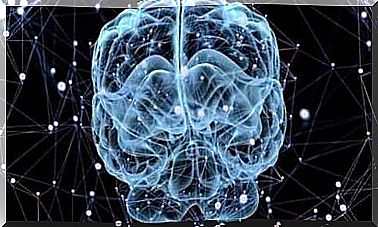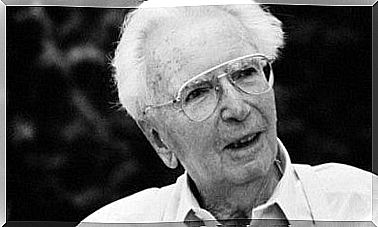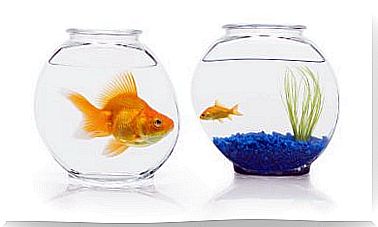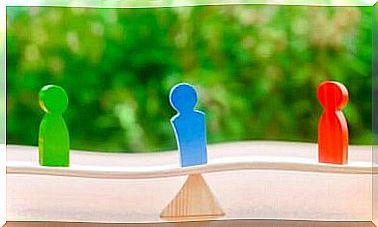We Eat When We Are Under Stress, Why?

Why do we eat when we are under stress? The relationship between stress and food has been under study for some time. Stress currently affects a large part of the world population, which is immersed in a globalized society that requires people who are increasingly specialized and full of quality to face and solve work, social or emotional problems.
It was Hans Selye, in 1926, who for the first time gave a definition of stress: “it is a non-specific response of the body to any type of stimulus”. The body reacts in similar ways to any event it considers stressful and this reaction is called non-specific, regardless of the reason that causes it ”.
Faced with an accumulation of physical or psychological tension, the body undergoes a series of changes on a physical, biological and hormonal level. Almost all our organs participate in this process, including the brain, nerves, heart, digestion, muscle function.
Stress is characterized by excessive activity of the functions of the central nervous system , sympathetic and parasympathetic, endocrine and immune systems. Among the most important physiological changes we can observe the secretion of hormones, such as adrenaline, noradrenaline and cortisol.
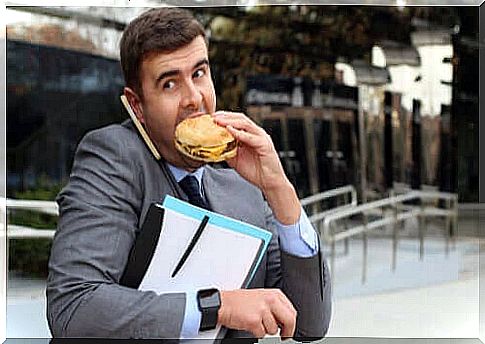
What triggers stress in us?
Stress can arise due to two factors: external stimuli (such as economic, family, work problems, etc.) and internal stimuli (such as pain, illness, feelings of inferiority or some psychological disorders).
In the long term, this emotional state directly interferes with our health, to the point of favoring the onset of certain pathologies or increasing the chances of the appearance of abnormal eating behaviors. The latter can alter eating patterns, which is why we often eat when we are under stress, an aspect that we are about to deal with in this article.
Why do we eat when we are stressed?
Appetite and hunger can be affected by stress. Sometimes a dissociation occurs between appetite (mainly psychological sensation) and hunger (essentially organic sensation).
The desire to eat can vary based on different emotional situations, due to the chemical, vascular and impulses transmitted by the midbrain and other organs of our body.
The act of eating, if guided by emotions, leads to consuming food in response to the latter, especially if negative. The most easily encountered signs are:
- Obsession with food.
- Consumption of premium food.
- Eating compulsively.
- Continue to eat despite feeling full.
- Weight fluctuations.
- Failing to pinpoint why you are eating.
- Lack of connection between the psychological signals of hunger and those of satiety.
- Ingestion faster than normal, without realizing it.
How does the fact that we eat when we are under stress affect us?
In case of stress, some people tend to consume foods with a higher glycemic index, more fats, more calories, richer in salt; they also tend to consume them in excess: that is to say that when we are stressed we eat more and worse.
Persisting in improper eating habits can harm our health and can cause not only overweight and obesity, but also a greater risk of developing various diseases such as:
- Hypercholesterolomy.
- Hypertension.
- Hypertriglyceridemia.
- Cerebrovascular accidents.
- Cardiovascular diseases.
- Acute myocardial infarction.
- Muscle problems.
- Respiratory dysfunctions.
- Increased risk of suffering from some forms of cancer.
- Diabetes.
- Difficulty falling asleep.

Some research studies on why we eat when we are under stress
Lattimore, P. and Caswell, in a study conducted by the University of Liverpool, expose the reasons why people eat more when faced with stressful situations. The authors argue that:
“These people invest so much energy trying to control their biological signals that they are left with few resources to deal with everyday problems. For this reason, in stressful situations, they lose control and if they have food on hand, they consume it. Furthermore, they are so used to not having awareness of their own body, that they ignore or misinterpret the signals associated with fight or flight ”.
Another research conducted by Laitinen J. and Sovio at the University of Leeds in the UK indicates that nervous tension is responsible for dangerous dietary changes and triggers unhealthy eating habits. In the words of the study authors:
“The people most at risk of eating under stress are the so-called emotional eaters, who are most vulnerable and most likely to resort to food to escape self-awareness. When they feel anxious or emotionally active or when they feel bad about themselves, they try to avoid these negative feelings by directing their attention to food ”.

